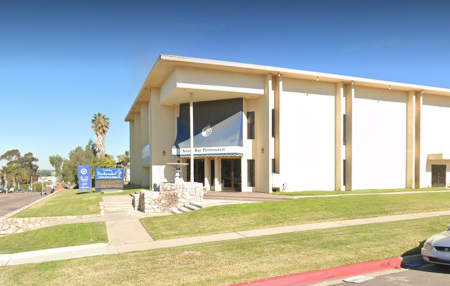9th Circuit upholds California's ban on indoor worship despite causing 'irreparable harm'

The U.S. 9th Circuit Court of Appeals denied a San Diego area church’s request to overturn California’s COVID-19 restrictions on indoor worship gatherings although it acknowledged that the congregation is suffering “irreparable harm” due to the temporary ban.
On Friday, the court affirmed a federal judge’s denial of South Bay United Pentecostal Church’s request to block Gov. Gavin Newsom’s restrictions on in-person, indoor worship services as part of an effort to mitigate the spread of the coronavirus.
“Although South Bay has demonstrated irreparable harm, it has not demonstrated that the likelihood of success, the balance of equities or the public interest weigh in its favor,” U.S. Circuit Judge Kim McLane Wardlaw wrote in the court’s opinion.
“Although there is no record evidence that attendance at South Bay’s services in particular has contributed to the spread of the virus, the record does evidence outbreaks tied to religious gatherings in San Diego County and in the Southern California region.”
Wardlaw, a Bill Clinton appointee, added that it is “difficult to see how allowing more people to congregate indoors will do anything other than lead to more cases, more deaths, and more strains on California’s already overburdened healthcare system.”
“We are mindful that ‘even in a pandemic, the Constitution cannot be put away and forgotten.’ But we do not think this is what California has done,” Wardlaw stated. “Although South Bay may not be able to hold indoor worship services, California has left open other avenues for worship that pose substantially less risk for further spread of COVID-19.”
The opinion stated that California permits “unlimited attendance at outdoor worship services and deems clergy and faith-based streaming services ‘essential.’”
The panel, however, left the door open for legal challenges to the state’s attendance caps in counties that are categorized under less restrictive tiers for virus mitigation.
According to The Sacramento Bee, the vast majority of counties in the state are listed as purple-tiered counties where indoor worship services are not permitted. Meanwhile, only four counties are in less-restrictive tiers.
In red-tier counties, worship is permitted indoors at a 25% capacity or 100 people. In orange-tier counties, indoor services can be held at 50% capacity or a maximum of 200 people, whichever is fewer.
“We cannot, however, conclude that the 100- and 200-person attendance caps on indoor worship under Tiers 2 and 3 of the Blueprint survive strict scrutiny,” the ruling explains.
COVID-19 has killed nearly 37,000 Californians and infected more than 3 million, according to the state’s tracking website. The state also reports that over 19,000 patients have been hospitalized with COVID-19 as of Sunday.
The Chula Vista-based church has argued in court that houses of worship are essential.
In December, the church attempted unsuccessfully for a second time to convince U.S. District Court Judge Cynthia Bashant to lift Newsom’s worship restrictions.
Eight weeks after Bashant had denied the church’s challenge, the 9th Circuit ordered Bashant to rehear the case in light of the Supreme Court’s decisions in Harvest Rock Church, Inc. v. Newsom and Roman Catholic Diocese of Brooklyn v. Cuomo.
In the Cuomo case, the high court in November temporarily blocked worship restrictions in New York. In December, the 2nd Circuit ruled in favor of religious groups and blocked worship restrictions put in place to mitigate the virus.
In the Harvest Rock Church case, the Supreme Court ordered a lower court to rehear a challenge to Newsom’s worship restrictions in light of its ruling on similar measures implemented in New York.
In a decision released in December, Bashant once again declined to lift worship restrictions, citing the need to balance “religious liberty and public health” in the midst of “a rapidly evolving – and escalating – pandemic.”
While she acknowledged that “not being able [to] congregate indoors imposes a burden on Plaintiffs’ religion,” she contends that “the burden is a temporary one, with widespread vaccination close in sight.”
The state of California has faced numerous lawsuits stemming from the governor’s gathering restrictions as well as restrictions on other activities.
South Bay’s legal efforts date back to the spring when the church took its case all the way to the Supreme Court in an attempt to convince the justices to invalidate Newsom’s guidelines that required churches to limit attendance at in-person worship services to 25% of a building’s capacity with a maximum of 100 attendees.





















